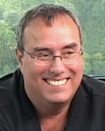New Media | 03 de mayo de 2012 | Vistas: 114
Peter Boettke presents his book Living Economics: Yesterday, Today, and Tomorrow. Before his presentation, Gabriel Calzada introduces the book and shares some of the learning he obtained from reading it; he expresses that this work is a real adventure and if a person wants to know why the economic science is in the state that it is today, they need to read it.
Peter Boettke, then, shares how Universidad Francisco Marroquín was one of his main inspirations for undergoing the effort of writing the book. During the presentation, he focuses on three topics: mainline versus mainstream economics, where he denotes the difference among them; economics as a public science, where he explains that this branch of knowledge should be communicated to the entire society and not only to those in political power; and finally, he comments on the importance of teaching mainline economics as a vocation and its consequences in our societies.
Read the preface and chapter one of the book.


Peter Boettke is professor of economics at George Mason University, where…
Nuestra misión es la enseñanza y difusión de los principios éticos, jurídicos y económicos de una sociedad de personas libres y responsables.
Universidad Francisco Marroquín